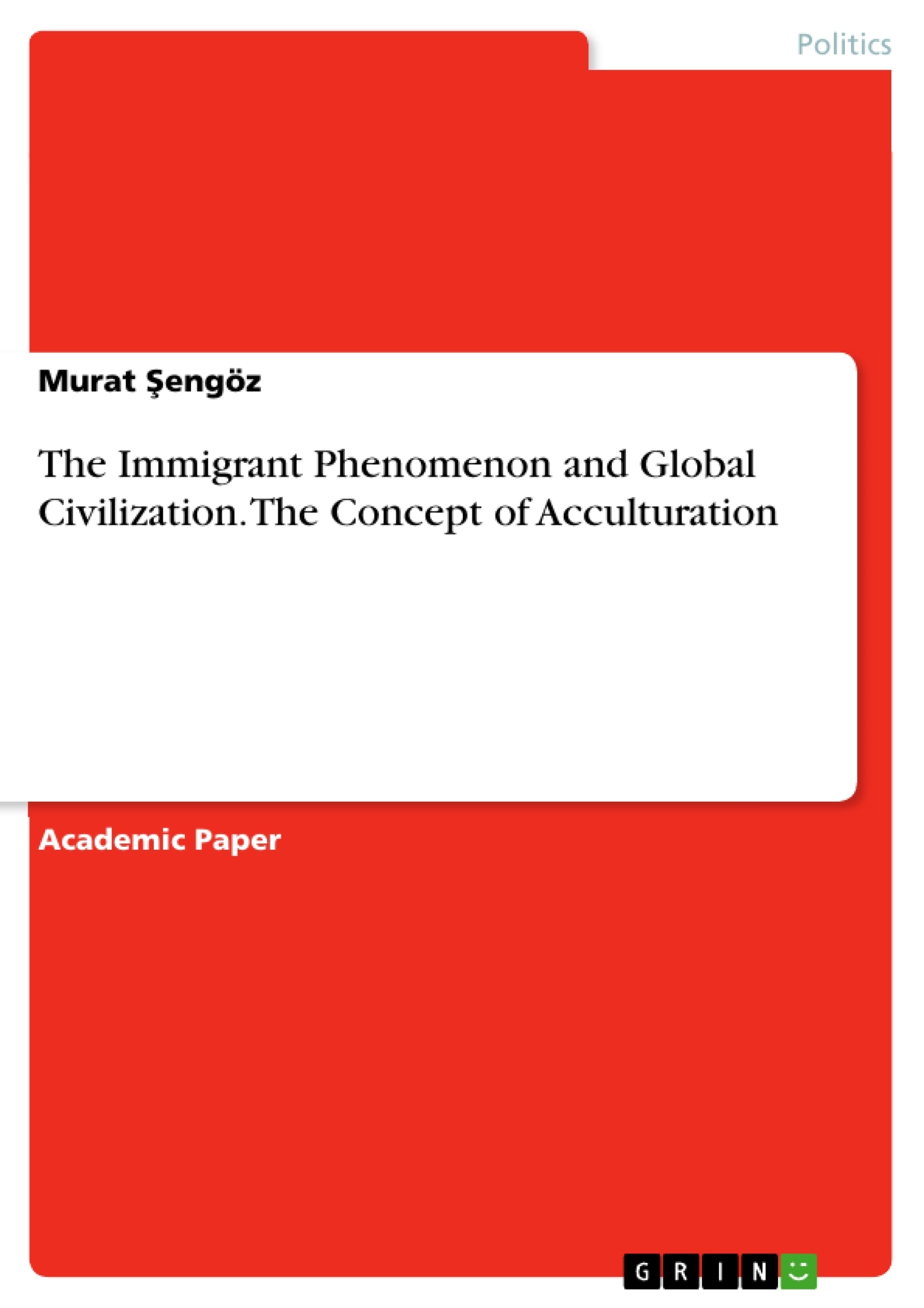In this study, the relationship between the concept of global citizenship and immigration will be revealed by qualitative research methods. In this context, the phenomenon of global citizenship will be handled from an axiological perspective in the axis of the concept of immigration, acculturation, and globalization.
The concept of migration means that people are permanently moved from one country or region to another country or region, individually or in groups. So, this is a permanent session change. The relocation can take place within the country or abroad, but the important point is that permanent migration in the context of political and economic relations rather than the proximity of the migration distance is important. In this respect, domestic immigration is a major humanitarian, economic and socio-cultural problem that needs to be explored and solved. Today, one of the most important themes of many developed Western countries is to ensure that the immigrant population and the indigenous people live together in harmony. This is called integration.
However, the immigrant and refugee issues are undoubtedly one of the most important security and survival problems of our time frame. Because what could be more truthful and pathetic than the drama experienced by people who had to leave their country in mass, how and how this desperation can be described.
Inhaltsverzeichnis (Table of Contents)
- The Immigrant Phenomenon
- The Multiculturalism
- Globalization
- The Concept of Acculturation
- The Concept of Civilization
- Global Isomorphism
- Creating Global Value and Pluralism
- Creating a Shared Global Civilization
- Conclusion
Zielsetzung und Themenschwerpunkte (Objectives and Key Themes)
This academic paper delves into the complex relationship between the phenomenon of immigration and the concept of global citizenship, exploring the socio-cultural, economic, and political dimensions of this dynamic. The study aims to shed light on how immigration impacts global civilization, focusing on the concept of acculturation and the potential for both integration and conflict.
- The impact of immigration on global civilization
- The role of acculturation in immigrant integration
- The concept of global citizenship and its implications for multicultural societies
- The challenges and opportunities presented by globalization in the context of immigration
- The potential for both conflict and harmony in multicultural societies
Zusammenfassung der Kapitel (Chapter Summaries)
The paper begins by examining the concept of migration and its significance as a permanent relocation of individuals or groups from one country or region to another. The first chapter explores the multifaceted nature of immigration, highlighting its economic, social, and political consequences for both sending and receiving countries.
Subsequent chapters delve into the related concepts of multiculturalism, globalization, and acculturation, examining their impact on global civilization and the integration of immigrant populations. The paper analyzes the challenges and opportunities associated with these concepts, exploring the potential for both conflict and harmony in multicultural societies.
The study concludes by considering the potential for creating a shared global civilization, emphasizing the importance of fostering understanding, tolerance, and inclusivity across cultural boundaries.
Schlüsselwörter (Keywords)
This study utilizes the following keywords to represent its primary focus: globalization, immigration, multiculturalism, acculturation, global citizenship, pluralism, and global civilization. These terms provide a framework for understanding the complex interrelationships between human movement, cultural diversity, and the evolving landscape of global society.
Frequently Asked Questions
What is the concept of acculturation in the context of immigration?
Acculturation refers to the socio-cultural process of change that occurs when an immigrant population interacts with a host country's culture.
How does globalization influence immigration?
Globalization increases international integration, facilitating human movement but also creating security and survival challenges for refugees and migrants.
What is meant by "global citizenship"?
Global citizenship is a perspective that emphasizes pluralism and shared values, aiming for harmony between indigenous people and immigrants in a multicultural society.
What is "global isomorphism"?
It is a concept discussed in the study relating to how institutions and cultures become more similar globally due to the forces of globalization.
Why is integration a major humanitarian problem today?
Ensuring that mass-migrated populations and host societies live together harmoniously involves complex economic, social, and security issues that are often difficult to solve.
- Quote paper
- Dr. Murat Şengöz (Author), 2023, The Immigrant Phenomenon and Global Civilization. The Concept of Acculturation, Munich, GRIN Verlag, https://www.grin.com/document/1357867



